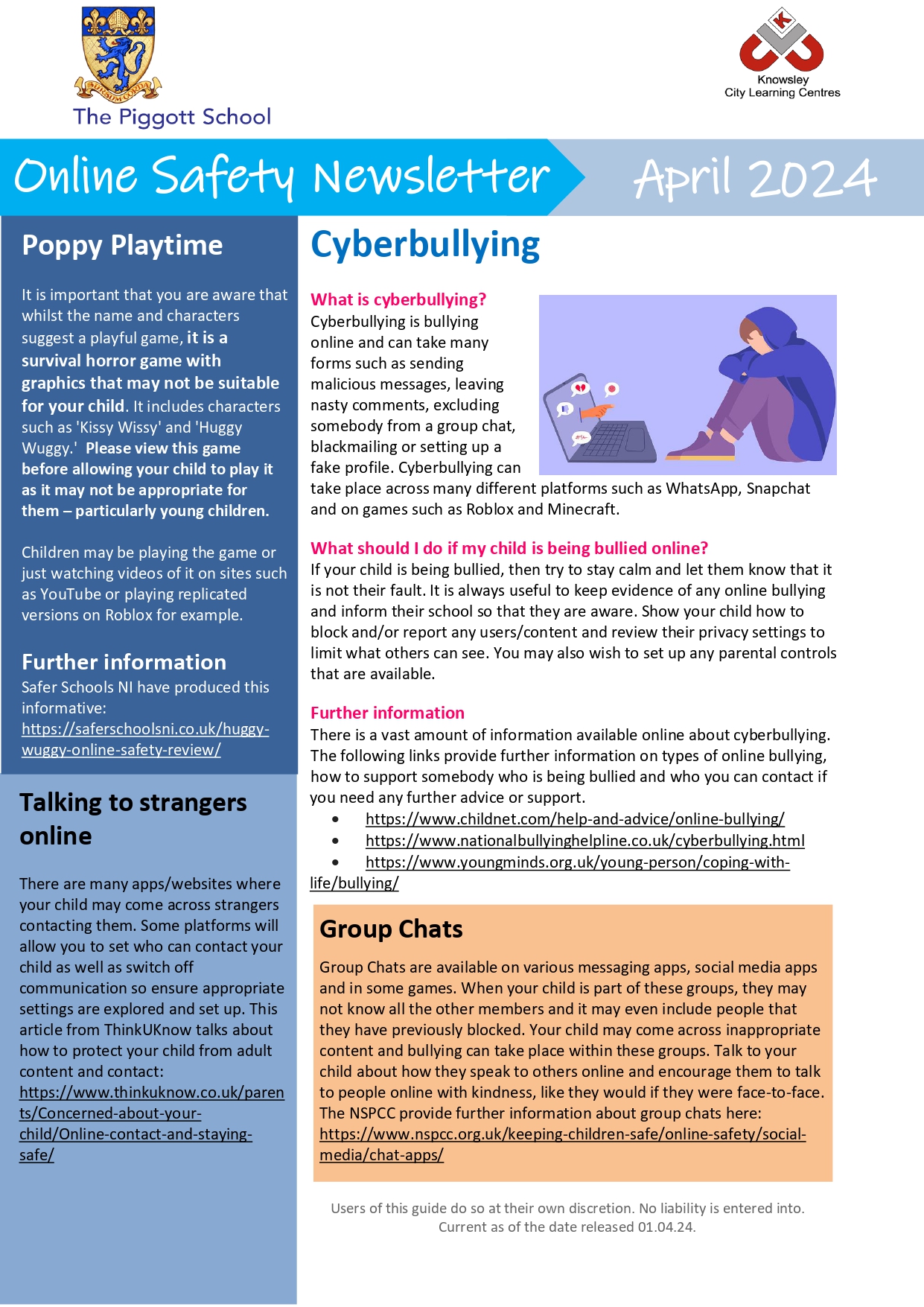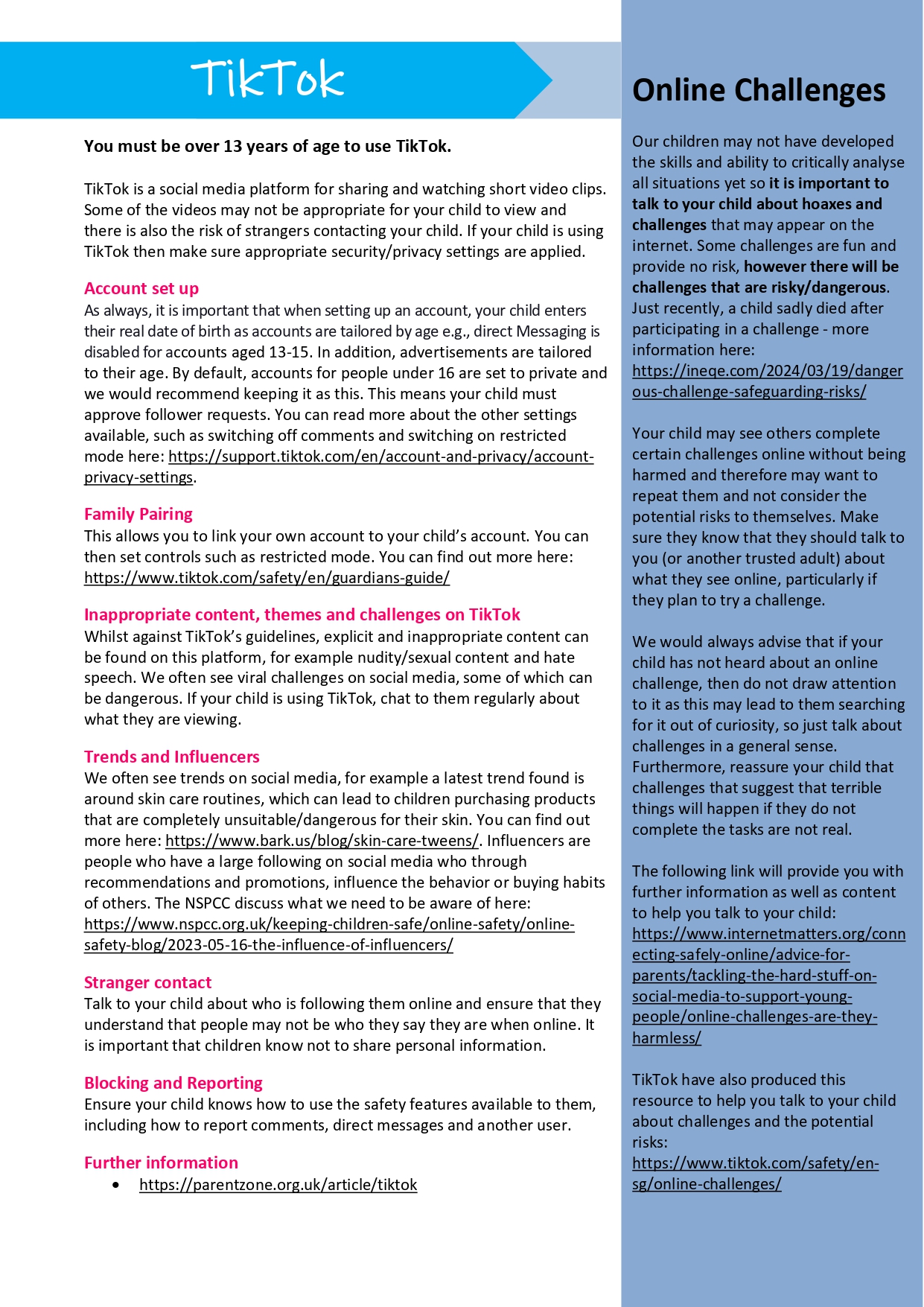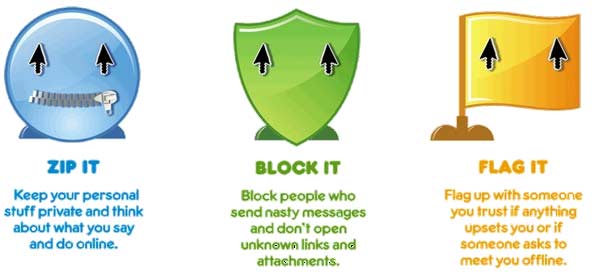Online Safety
have a consistent experience of Online Safety education. We aim to ensure that all students from Year 7 to Year 13 receive embedded opportunities within the curriculum and pastoral tutor time to learn how to stay safe online, particularly during the current situation where young people are spending even more time online. New technologies bring exciting learning opportunities, but careful management and education is needed to ensure that everyone is safe in our digital world.


|
S |
SAFE
Stay safe by being careful not to give out personal information to people you are chatting with online.
|
|
M |
MEETING
Meeting someone who you have only been in touch with online can be dangerous. Only do so with your parents' permission and only when they can accompany you.
|
|
A |
ACCEPTING
Accepting emails, instant messages or opening files and pictures from people you don't know or trust can lead to problems - they may contain viruses or nasty messages!
|
|
R |
RELIABLE
Information you find on the internet may not be true, or someone online may be lying about who they are.
|
|
T |
TELL
Tell your parent, carer or an adult if someone or something makes you feel uncomfortable or worried, or if you or someone you know is being bullied online.
|
|
1
|
POSITIVE
Stay positive about social networking sites. Strike a balance between educating children to behave safely and trusting them to get on with it.
|
|
2
|
PRIVACY
Make sure children know how to use privacy settings. Explain the importance of keeping information private and not sharing everything with everyone. Check they know all their online friends. If they don't, delete them.
|
|
3
|
PHOTOS
Check that any photos posted are suitable. Photos can easily be copied, changed or circulated. They can potentially stay online forever.
|
|
4
|
POSTINGS
Establish ground rules about what is and isn't acceptable to say - about themselves and others.
|
|
5
|
PARENTS
Encourage children to tell you about inappropriate contact that makes them feel uncomfortable. Offensive images or messages can be reported to the police via the Child Exploitation and Online Protection Centre.
|

An excellent resource for students and parents is https://www.internetmatters.org/
CEOP Button
For children and young people
CEOP helps any child or young person under the age of 18 who is being pressured, forced or tricked into taking part in sexual activity of any kind. This can be something that has taken place either online or in ‘the real world’, or both. The CEOP Safety Centre has clear information and advice on what can be reported to CEOP, the reporting process and what will happen if you do decide to make a report. You can visit the CEOP Safety Centre and make a report directly to CEOP by clicking the Click CEOP button.
If you are experiencing online bullying or something else online has worried you please speak to an adult you trust, or you can talk to Childline at any time on 0800 1111 or at www.childline.org.uk.
For adults
CEOP is a command of the National Crime Agency and is dedicated to tackling the sexual abuse and exploitation of children and young people. CEOP helps children and young people under the age of 18 who have been forced or manipulated into taking part, or are being pressured to take part, in sexual activity of any kind. This can be both online and offline. The CEOP Safety Centre offers information and advice for children and young people, parents and carers and professionals. You can visit the CEOP Safety Centre and make a report directly to CEOP by clicking the Click CEOP button.
Online bullying or other online concerns should not be reported to CEOP and children and young people should be directed to speak to an adult they trust, and/or referred to Childline, if they would like to speak to someone about how they are feeling.

